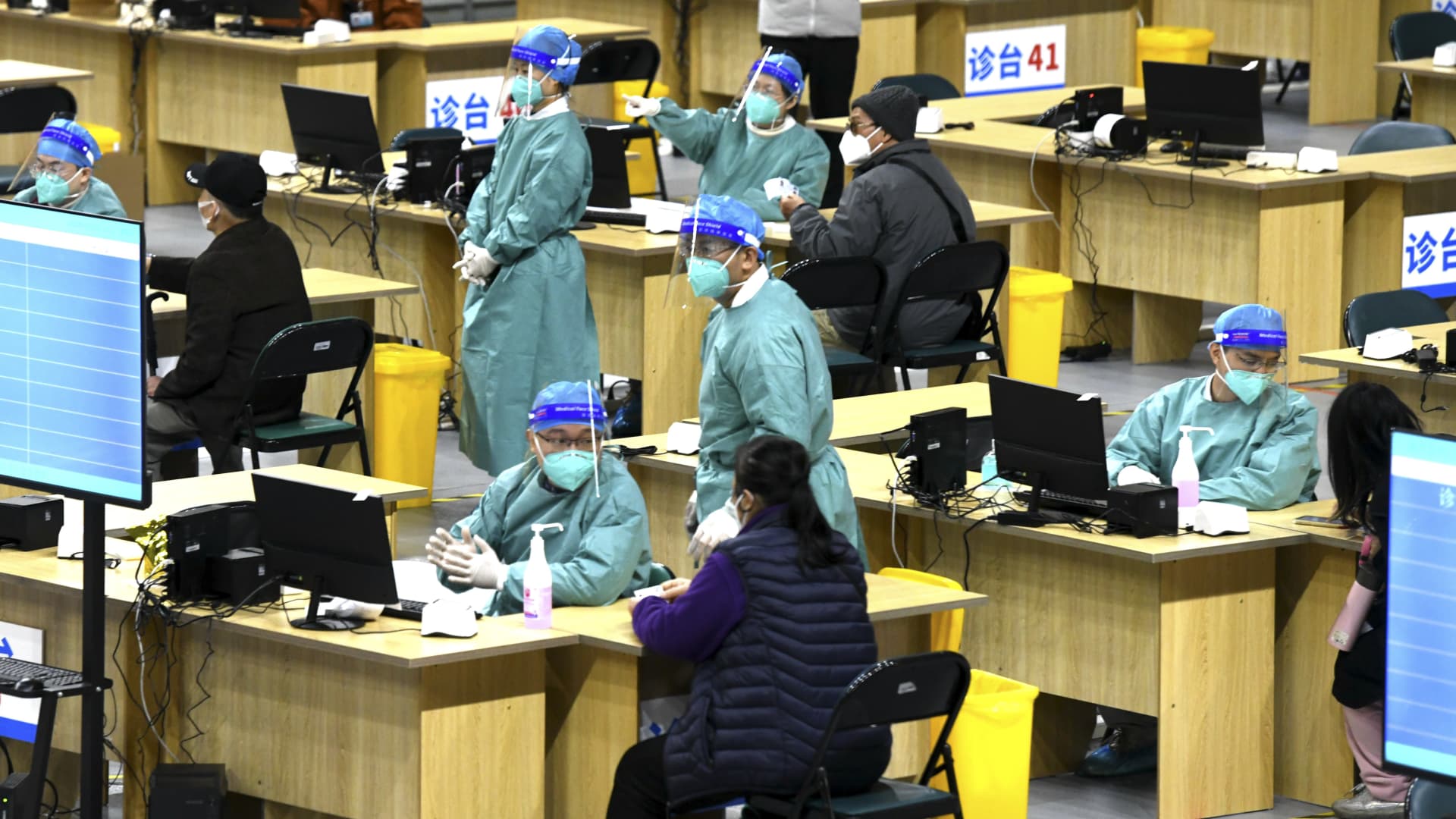Pictured here on Dec. 28, 2022, is gymnasium-turned-fever clinic in Fuzhou, Fujian province.
Wang Dongming | China News Service | Getty Images
BEIJING — It’s unlikely that a dangerous new Covid-19 variant is spreading in China, said Dr. Chris Murray, Seattle-based director of a health research center at the University of Washington.
His comments Friday on CNBC’s “Squawk Box Asia” come as U.S. health officials warned this week about the chance of a new Covid variant emerging in China’s nationwide outbreak — and how Beijing’s lack of transparency could delay detection of public health risks.
Murray, director of the Institute for Health Metrics and Evaluation, pointed out there were likely billions of omicron infections worldwide this year, but no new Covid variant has emerged, only subvariants of omicron.
“That’s why I would put the risk as quite low that there is a dangerous new variant in China,” he said. He noted that “some very special characteristics” would be needed for a new variant to emerge and replace omicron.
The variant was first detected in South Africa more than a year ago. Omicron is far more transmissible, but causes less severe disease, than when Covid first emerged in Wuhan, China, in late 2019.
Unlike much of the world, China’s Covid wave this month is affecting a population of 1.4 billion people who are mostly getting infected for the first time. Only domestically made vaccines are widely available to locals.
Beijing this month suddenly relaxed many Covid-related restrictions on movement. On Monday, authorities also said they would scrap inbound quarantine starting Jan. 8, while resuming passport processing for Chinese citizens wanting to travel abroad for tourism.
The U.S., Japan and a few other countries this week subsequently announced new Covid testing requirements for travelers from China.
Need for hospitalization, death data
Murray said an outright travel ban, if proposed, “would not make sense,” and that he “would not put in testing requirements.”
“The argument that’s being made is, we need more transparency about what’s happening in China,” Murray said.
“The earliest sign of some new variant is actually going to be a change in the hospitalization or the death rate associated with Covid, and not just lots of infections, because we know omicron does that,” he said.
China’s National Health Commission said Sunday it would stop releasing daily information on Covid infections and deaths. However, the Chinese Center for Disease Control and Prevention has maintained daily reports — which, along with hospital discharges, only show thousands of new Covid infections a day and a handful of deaths. Covid testing is no longer mandatory in China.
Releases on China’s disease control center website show its director Shen Hongbing held online meetings this month with his U.S. counterpart and the head of the U.K. Health Security Agency.
Covid risks
As for the theory that viruses adapt to keep their hosts alive, Murray warned that it “applies over quite a long timespan, not months or years.”
Genomic research shows it’s still possible for a mutation to emerge that causes more severe disease, Murray said. “I think it would be unwise for us just to assume that all the variants are going to be like omicron.”
A study published in Nature Medicine in November also found that getting infected by Covid-19 more than once increases the risk of organ failure and death.














































